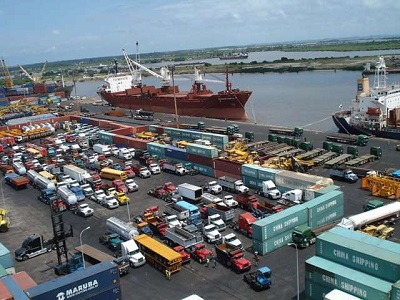Managing Nigeria’s Import-Dependency Disorder

Director-General of the National Agency for Food and Drug Administration and Control (NAFDAC), Prof. Mojisola Adeyeye’s recent disclosure that 70 percent of medicines used in Nigeria are imported while only 30 per cent are produced locally is another disclosure that tells a gory tale about our systemic failure that keeps failing.
That Nigeria is an import-dependent country, indeed a dumping ground for all manner of industrial consumables from different countries is well known. The country produces merely a fraction of what it uses, while the rest are imported. The industrial sector is comatose thereby forcing the country to virtually depend on importation. Sadly, our leaders only read from their own book of lamentation on this national disaster. They hardly address such challenges. This is unfortunate.
NAFDAC’s assertion on medicines is applicable to practically every industrial product used in the country. The other day, for instance, the Federal Ministry of Agriculture and Rural Development (FMARD), revealed that about 1.5 billion dollars worth of dairy products are imported into the country every year.
Dr. Abdulkadir Mu’azu, Permanent Secretary, FMARD, disclosed the dismal development at the Inception Workshop of Food and Agricultural Organization (FAO) of the United Nations Technical Cooperation Project TCP/NIR/3701. The project is referred to as ‘Piloting the Implementation of the National Livestock Transformation plan in Niger and Kaduna States.’ This is part of the spectacles we read about every day, which the authorities hardly address.
The Permanent Secretary, represented by Mrs. Winnie Lai-Solarin, the Acting Director of Animal Husbandry Services FMARD, revealed that the huge bill is due to the long neglect of the livestock sector that has put a lot of burden on the import bills of the country. Mu’azu said that about 5 billion US dollars worth of food is imported yearly into the country out of which milk and dairy products account for 1.2 billion dollars to 1.5 billion dollars. It is lamentation galore!
Doubtless, the challenges of growth in the livestock value chain are multifarious including low breed quality, herder and crop farmer conflicts, and banditry among other security challenges. Whereas, excessive importation of medicines is part of the problem, NAFDAC’s major challenge too is how to curtail the importation of illicit drugs.
The NAFDAC boss has expressed the agency’s readiness to eliminate substandard and falsified medicines in the country through partnership with pre-shipment agents in China and India from where most medicines were imported; there is no guarantee that it would curtail illicit drugs business in the country. In the next few months, there will still be concern raised on this same shameful act.
Nigeria’s once bustling industrial productive sector took a dramatic plunge after the environment became harsh and un-conducive for productivity, which forced many industrial concerns to close shop and move to neighbouring countries.
The most critical factor is the collapse of the power sector, which most investors need most. There is indeed a collapse of critical infrastructure including roads and ports, which have forced some multinational industrial concerns to fold up and relocate to other countries in the continent.
Fixing the power sector alone would be a major incentive to industrial rejuvenation. Sadly, the power sector revival remains a bridge still too far!







